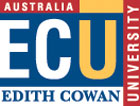PhD – Doctor of Philosophy (Integrated): Security science
PhD – Doctor of Philosophy (Integrated): Security science
Security science is an empirical endeavour, seeking to describe, analyse, explain and counter security and other malevolent centred actor problems in a rigorous and impartial manner. The university’s focus on security science has been recognised as world leading, with scholars within the School of Science educating students on the application…
Categories
COURSE DESCRIPTION
Security science is an empirical endeavour, seeking to describe, analyse, explain and counter security and other malevolent centred actor problems in a rigorous and impartial manner.
The university’s focus on security science has been recognised as world leading, with scholars within the School of Science educating students on the application of scientific knowledge through the scientific method to diagnose, infer about, and treat security problems accordant with empirical evidence. The Schools research across the domain of security science seeks to add to the security science body of knowledge through empirical research outcomes. Security science research at ECU concentrates on: Risk, Resilience, Intelligence and Counterintelligence, Cyber/Physical security intersection, Security technology, Corporate security, Community security and Crime prevention, Surveillance, Security education, Terrorism and Violent extremism. Specific research topics related to the above are developed in conjunction with academic supervisors. The School has a range of facilities, including a security science laboratory to facilitate research, and also places a high emphasis on industry collaborations and government agencies to enhance post-graduate research outcomes and student experience.
Career Opportunities
Employment opportunities
Students will develop new knowledge and skills for enhancing their employment across government agencies, the corporate security and intelligence sectors, local councils and private consulting.
Possible future job titles
Security, intelligence, risk, counter–terrorism, crime prevention, resilience, continuity, technology, cyber-physical.
REQUIREMENTS
All applicants are required to hold a Master by Coursework in a related field. Alternatively applicants can hold an Honours degree, or the equivalent in a relevant field from a recognised University, Applicants seeking online study will be required to provide additional information to support their application, as not all projects nor disciplines are suited to online study.
Academic admission requirements (Band 10) may be satisfied through completion of one of the following:
Masters Degree (Research);
Masters Degree (Coursework) in a related discipline area;
Masters Degree (Coursework) with 2/3 research component; or
Bachelor Honours Degree.
English competency requirements:
IELTS Academic: An overall band minimum score of 6.5, with no individual band less than 6.0.) (Results are typically valid for 2 years and online tests are not acceptable.)
TOEFL iBT: TOEFL iBT: 84 (with no score below 17)
TOEFL Paper-Based Test (PBT): Minimum score of 573, including Test of Written English of 5.0 or better. (Results are typically valid for only 2 years)
Pearson Test of English (PTE): PTE Academic 58, with no score less than 50 for postgraduate standard entry courses. (Results are typically valid for only 2 years)
EDUCATIONAL INSTITUTION
Edith Cowan University (ECU) is a large, multi-campus institution serving communities in Western Australia and internationally.ECU was awarded university status in 1991, but despite its relative youth, the University has a proud history of more than a century of service to education in Western Australia and is recognised for its teaching and learning, excellence in research, and partnerships with the community.We have more than 23,300 students, including around 18,500 undergraduates and 4,800 postgraduates. Approximately 3,600 international students attend the University, originating from 104 countries.We are a progressive University with courses developed through ongoing industry input, and employing lecturers who engage fully with their students. We’re a university that knows while knowledge is important, understanding comes from experience –experience that enables you to adapt what you’ve learned to whatever opportunities come your way. Because that’s when you do more than just survive in this world. You thrive in it.




